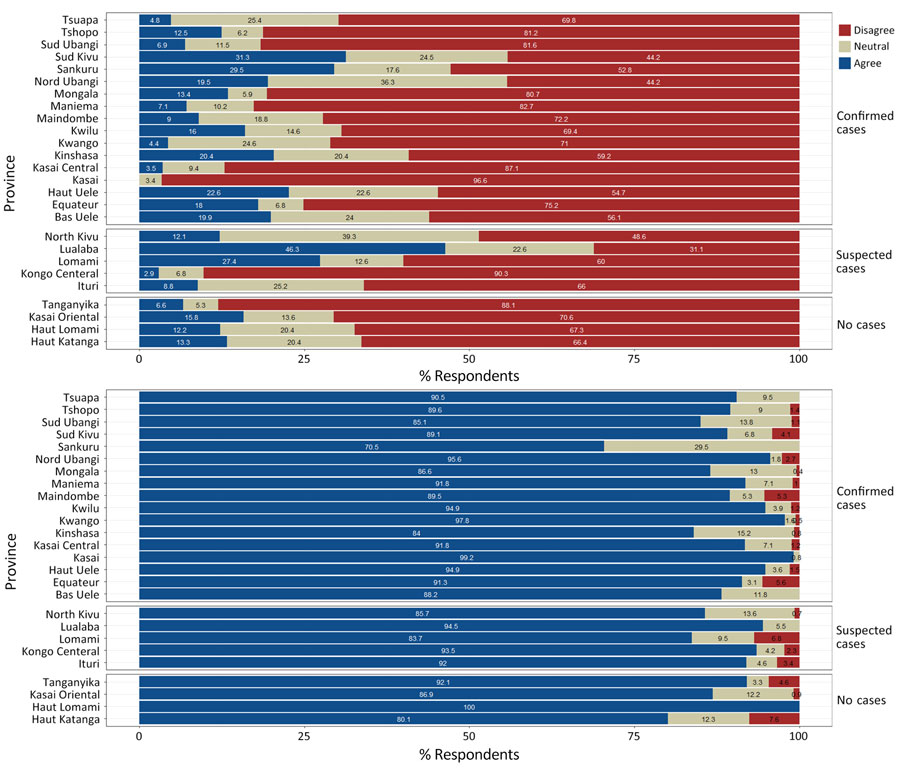Volume 30, Number 12—December 2024
Dispatch
Mpox Vaccine Acceptance, Democratic Republic of the Congo
Figure 1

Figure 1. General mpox vaccine attitudes and perceptions from a telephone phone survey about mpox vaccine acceptance conducted during December 2023–February 2024, by province, Democratic Republic of the Congo. A) Reported responses to the statement: new vaccines carry more risks than older vaccines; B) reported responses to the statement: information I receive about vaccines from the vaccine program is reliable and trustworthy. Provinces are listed by whether they had confirmed, suspected, or no mpox cases detected. The 3-level responses were collapsed from a 5-point Likert scale.
1These first authors contributed equally to this article.
2These last authors contributed equally to this article.
Page created: October 15, 2024
Page updated: November 26, 2024
Page reviewed: November 26, 2024
The conclusions, findings, and opinions expressed by authors contributing to this journal do not necessarily reflect the official position of the U.S. Department of Health and Human Services, the Public Health Service, the Centers for Disease Control and Prevention, or the authors' affiliated institutions. Use of trade names is for identification only and does not imply endorsement by any of the groups named above.